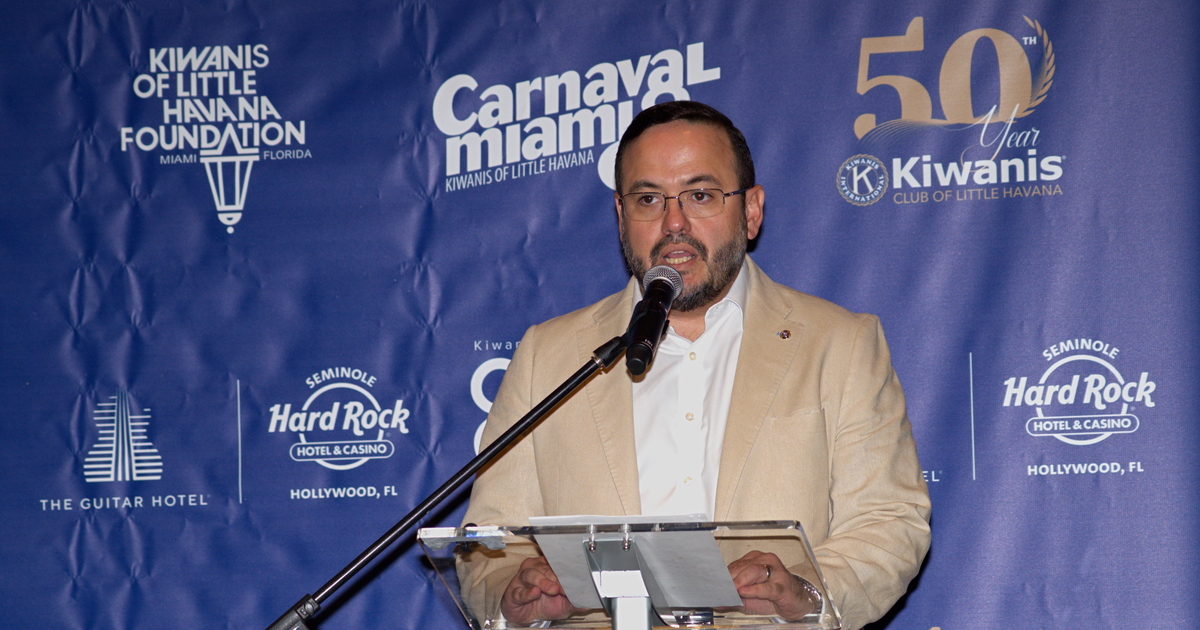BUENOS AIRES, Argentina (AP) — A group of friends gather to play cards in their host’s cozy home when the power cuts. Cellphones die. An eerie snow falls all over the city, killing everyone it touches. The friends struggle to survive, their panic replaced by a growing awareness that humanity itself is at stake.
This is the premise of “The Eternaut,” a chilling dystopian drama out of Argentina that premiered its first season on Netflix on April 30. The six-episode, Spanish-language series with its mix of sci-fi elements and focus on humanity’s resilience, has struck a universal nerve, rocketing to No. 1 among Netflix’s most streamed non-English-language TV shows within days.
Netflix already renewed the show for a second season, with filming scheduled to start next year.
But “The Eternaut” has touched on something deeper in Argentina, where legendary comic-strip writer Héctor Germán Oesterheld penned the original graphic novel in 1957 — two decades before he was “disappeared” by Argentina’s military dictatorship, along with all four of his daughters.
Abroad, publishers are scrambling to keep pace with renewed interest in the source material. The Seattle-based Fantagraphics Books said it would reissue an out-of-print English translation due to the surge in U.S. demand.
At home, the TV adaptation has reopened historical wounds and found unexpected resonance at a moment of heightened anxiety about the state of Argentine society under far-right President Javier Milei.
“The boom of ‘The Eternaut’ has created a cultural and social event beyond the series,” said Martín Oesterheld, the writer’s grandson and a creative consultant and executive producer on the show. “It fills our hearts. It brings us pride.”
An alien invasion hits home
For years, the surviving Oesterhelds resisted offers from Hollywood to adapt the cult classic, wary of the industry’s seemingly irresistible urge to destroy New York City and other Western centers in apocalyptic dramas.
To honor his grandfather’s creation, Martín Oesterheld said the show had to be filmed in Spanish, with an Argentine cast and set in Buenos Aires.
“What he did was to do away with the representations of science fiction that we know in Europe and the United States,” Martín Oesterheld said of his grandfather. “He told it on our own terms, through things that we recognize.”
Netflix, pushing to expand beyond its saturated U.S. market into previously untapped regions like Latin America, was a natural fit, he said. The streaming giant wouldn’t disclose its budget, but said the special effect-laden show took four years of pre- and post-production, involved 2,900 people and pumped $34 million into Argentina’s economy.
In the show, aliens wreak predictable mayhem on an unpredictable cityscape — wide boulevards, neoclassical buildings, antique pizza halls and grimy suburbs — lending the show a shiver of curious power for Argentines who had never seen their city eviscerated on screen.
The protagonists don’t play poker but truco, a popular Argentine trick card game. They sip from gourds of mate, the signature Argentine drink made from yerba leaves. The snowfall is uncanny, and not just because it kills on contact. Buenos Aires has only seen snow twice in the last century.
“From truco in scene one, which couldn’t be more Argentine, we see that ‘The Eternaut’ is playing with these contrasts — life and death, light and darkness, the familiar versus the alien,” said Martín Hadis, an Argentine researcher specializing in science fiction. “It’s not just a sci-fi story. It’s a modern myth. That’s what makes it so universal.”
In updating the story to present-day Argentina, the show brings the nation’s disastrous 1982 war with Britain over Las Malvinas, or the Falkland Islands, into the backstory of its hero, Juan Salvo, played by renowned actor Ricardo Darín.
Salvo, a protective father and courageous ex-soldier who emerges to lead the group of survivors, is haunted by the rout of his comrades sent by Argentina’s dictatorship to retake the South Atlantic islands. The defeat killed 649 Argentine soldiers, many of them untrained conscripts.
“The conflict in Las Malvinas is not closed, it’s still a bloody wound,” Darín told The Associated Press. “It’s bringing the subject back to the table. That has moved a lot of people.”
Argentine underdogs
Faced with catastrophe, the protagonists rely on their own ingenuity, and on each other, to survive.
What comes through, the creators say, is the Argentine saying “atado con alambre” — roughly, “held together with wire” — used to describe the inventive nature of those who do much with little in a nation that has suffered through decades of military rule and economic crises.
“It says a lot about being Argentine — taking whatever you have at your disposal and pushing your limitations,” said Martín Oesterheld. He was referring not only to the plot but also to the production at a time when Milei has waged war on Argentina’s bloated state and slashed funding to cultural programs like the National Film Institute.
“As our culture is being defunded, we’re taking this Argentine product to the world,” Martín Oesterheld said.
Against this backdrop, the show’s message of solidarity has gained an urgent new meaning, with Argentines outraged over Milei’s libertarian ideology transforming the series’ motto, “No one gets through it alone,” into a rallying cry.
The slogan was scrawled on signs at protests by retirees demonstrating against the government’s sharp cuts to their pensions this month. To protect against police tear gas, some traded bandannas for the gas masks used in the show to shield against toxic snowfall.
“There is a general policy these days that the state shouldn’t take care of its citizens, which relates to individual freedom,” Darín said. But there are many cases where if the state disappears completely, people are left to drift, as if they were shipwrecked.”
A search reignited
As the Netflix series exploded out of the gate, missing-persons flyers for Héctor Oesterheld, his daughters and potential grandchildren popped up on billboards for “The Eternaut” all over Buenos Aires, a reminder of the real-life horror story behind the pulp adventure.
By the time the military junta came to power in 1976, Oesterheld, 58, had become known as a committed leftist, his four daughters, ranging in age from 19 to 25, had joined a far-left guerilla group and the whole family had turned into a target of Latin America’s deadliest dictatorship.
Two of Oesterheld’s daughters were pregnant at the time of their kidnapping. To this day, no one knows what happened to their unborn children, but they are believed to be among the estimated 500 newborns snatched from their parents and handed over to childless military officers, their true identities erased.
The three surviving members of the Oesterheld family have never stopped searching. Martín Oesterheld’s grandmother, Elsa, who raised him after his mother was killed, banded together with other women dedicated to finding their missing grandchildren. They became known as the Grandmothers of the Plaza de Mayo.
Seizing on national interest in the TV series, the Grandmothers this month issued public appeals for help finding the disappeared grandchildren.
The response was overwhelming.
“It was incredible, it went viral,” said Esteban Herrera, who works with the Grandmothers and is still searching for his own missing sibling. “Since it’s a science-fiction series on a platform like Netflix, we’re reaching homes that the Grandmothers perhaps hadn’t before.”
The outpouring of emails and calls raised more questions than answers. Reaching out were hundreds of Argentine viewers newly determined to find their own disappeared relatives or suddenly skeptical about the legality of their own adoptions.
“The Eternaut’ is a living memory, a classic story that’s passed down from generation to generation,” said Martín Oesterheld. “For it to be embraced by so many people in this way ... there is no greater social commentary.”
___
Follow AP’s coverage of Latin America and the Caribbean at https://apnews.com/hub/latin-america
 hace 3 meses
45
hace 3 meses
45






 English (US) ·
English (US) ·  Spanish (ES) ·
Spanish (ES) ·